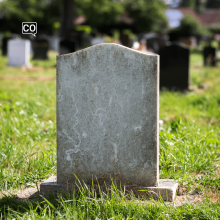Morir (to die) - Subjuntivo pretérito perfecto, subjuntivo (Subjunctive past perfect, subjunctive) - Spanish

Morir - Conjugation of to die in Spanish: Conjugation table, examples and exercises in the subjunctive past perfect, subjunctive tense (Subjuntivo pretérito perfecto, subjuntivo).
Subjuntivo pretérito perfecto, subjuntivo (Subjunctive past perfect, subjunctive)
All conjugations and tenses: Morir (to die) - conjugation and tenses - (Spanish)
Syllabus: Spanish lesson - Infancia y recuerdos (Childhood and memories)
Conjugation of to die in Subjuntivo pretérito perfecto
- yo haya muerto I have died
- tú hayas muerto you have died
- él/ella haya muerto he/she has died
- nosotros/nosotras hayamos muerto we have died
- vosotros/vosotras hayáis muerto you have died
- ellos/ellas hayan muerto they have died
Example phrases
- Espero que haya muerto el pollo antes de cocinarlo. I hope that the chicken has died before cooking it.
- Espero que tú hayas muerto a tiempo para ver la rosa florecer. I hope that you have died in time to see the rose bloom.
- Es posible que él haya muerto el roble en el campo. It is possible that he has died the oak in the field.
- Dudamos que hayamos muerto todas las plantas del jardín. We doubt that we have died all the plants in the garden.
- No creo que hayáis muerto de aburrimiento en la excursión. I don't think you have died of boredom on the trip.
- Es probable que las ovejas hayan muerto de frío en la montaña. It is likely that the sheep have died of cold in the mountain.
Exercise: Conjugate the verbs - morir (to die)
Instruction: Choose the correct word, read the sentence out loud and translate.
Show answers Show translationMorir (Subjuntivo pretérito perfecto, subjuntivo)
1. Dudamos que ... todas las plantas del jardín.
2. Espero que tú ... a tiempo para ver la rosa florecer.
3. Es probable que las ovejas ... de frío en la montaña.
4. No creo que ... de aburrimiento en la excursión.
5. Es posible que él ... el roble en el campo.
6. Espero que ... el pollo antes de cocinarlo.